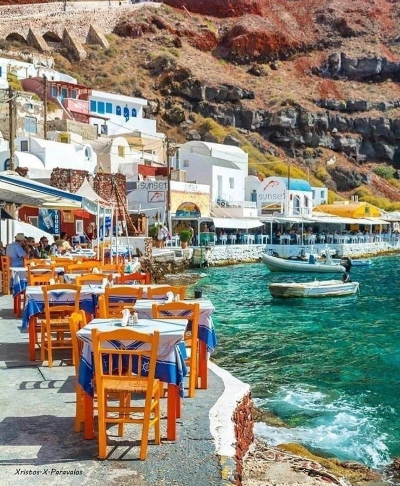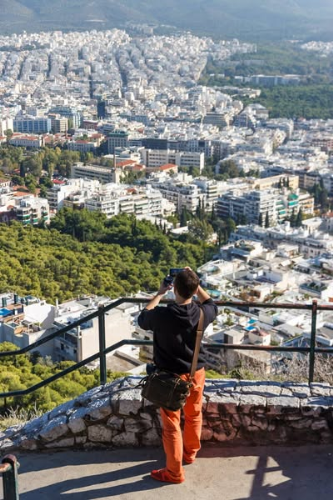
©
Платформа короткострокової оренди Airbnb виступила з гучною заявою: за стрімке зростання туризму в європейських містах, зокрема у Барселоні, Афінах і Санторіні, слід звинувачувати не онлайн-сервіси, а насамперед готелі. Коментарі прозвучали на тлі дедалі жорсткіших заходів з боку місцевої влади, яка обмежує короткострокову оренду через скарги мешканців на брак житла, зростання цін та перенаселення популярних туристичних локацій. Як заявив віцепрезидент Airbnb з публічної політики Тео Єдінські в інтерв’ю Financial Times, компанію зробили «цапом-відбувайлом» у суперечці про перенасичення туризмом. За даними Євростату, більшість туристів у Європі все ще зупиняються в готелях: у 2024 році — 63% загальної кількості ночівель. Водночас частка короткострокової оренди, хоч і менша, зростає значно динамічніше. У 2024 році на таких платформах, як Airbnb, туристи провели 715 мільйонів ночей — на 57 мільйонів більше, ніж роком раніше. Для порівняння, кількість ночівель у готелях зросла на 73 мільйони і досягла 1,9 мільярда. Деякі міста вже ввели обмеження. У Лісабоні призупинено видачу нових ліцензій на короткострокову оренду, Афіни запровадили однорічний мораторій, а Барселона, за розпорядженням уряду, змусила Airbnb прибрати понад 66 тисяч оголошень. Попри це, Airbnb наполягає: короткострокова оренда допомагає зменшити тиск на популярні туристичні центри, спрямовуючи потоки мандрівників до менш відвідуваних місць. За прогнозами, туристичний сезон 2025 року стане рекордним: лише за літо в Європі вже заброньовано понад 115 мільйонів ночівель — на 13,5% більше, ніж торік.
Airbnb Blames Hotels for Overtourism in Europe
The short-term rental platform Airbnb has made a bold statement: the rapid surge in tourism across European cities—particularly in Barcelona, Athens, and Santorini—is not the fault of digital platforms, but rather the hotel industry. The comments come as local governments increasingly crack down on short-term rentals in response to complaints from residents about housing shortages, rising prices, and overcrowding in popular destinations. According to Theo Yedinsky, Airbnb’s Vice President of Public Policy, the company has become a "scapegoat" in the debate over overtourism. In an interview with the Financial Times, he argued that while Airbnb is often targeted by city authorities, especially in historic centers, it is in fact hotels that drive the majority of tourism traffic. Data from Eurostat supports this view: in 2024, 63% of all overnight stays in Europe were in hotels. However, the short-term rental sector—though smaller—is growing at a much faster pace. In 2024, tourists spent 715 million nights in short-term rentals like Airbnb, 57 million more than the previous year. For comparison, hotel stays increased by 73 million, reaching a total of 1.9 billion nights. Several cities have already implemented restrictions. Lisbon has halted the issuance of new short-term rental licenses, Athens introduced a one-year moratorium, and Barcelona, under government orders, forced Airbnb to remove over 66,000 listings from its platform. Despite the backlash, Airbnb insists that short-term rentals actually help relieve pressure on overcrowded tourist hubs by directing visitors to lesser-known destinations. Projections for the 2025 travel season suggest a record-breaking summer: over 115 million overnight stays have already been booked across Europe between June and August, a 13.5% increase compared to the same period last year.

©
2045